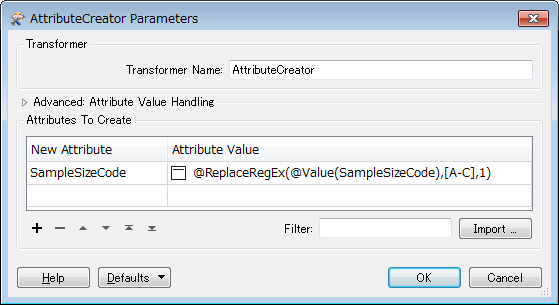Hi All,
I'm trying to use the text editor for setting attributes in the AttributeValueMapper.
The input can be any character from A to Z. Values A, B and C should be mapped to value 1. So, I thought that
@FindRegEx(@Value(SampleSizeCode),[A-C]) would do the trick, but the value is not attributed.
Solved this with a Conditional Value in the AttributeCreator, but I'm still interested why it doesn't work this way.

















